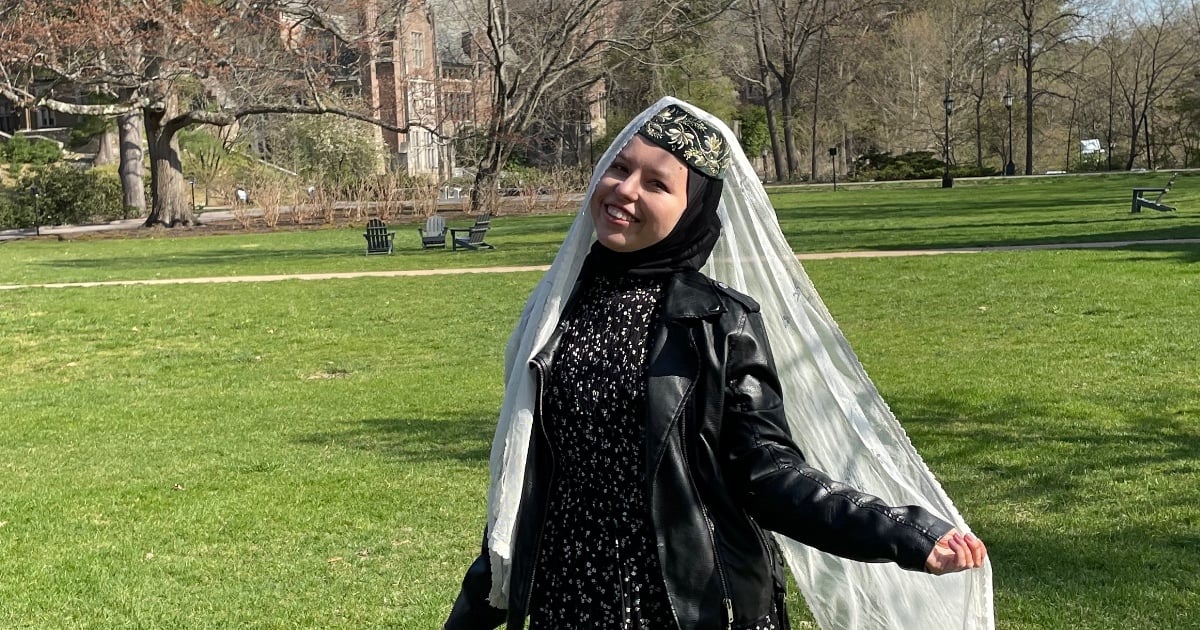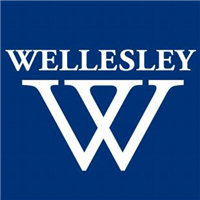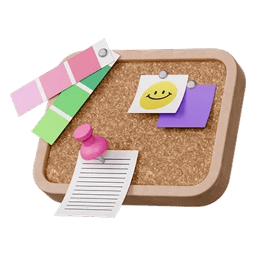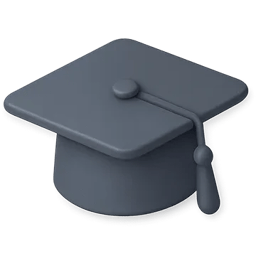High School: FLEX and Ukraine Global Scholars
I come from Crimea, Ukraine, and lived there until 2019 while attending a local high school. We referred to it as a "boarding school," but it was different from the private, selective schools you'd find in America. In our area, the term was just a familiar way to describe a school with a slightly better curriculum than usual. But, it didn't really prepare us for international university studies or studying abroad. So, I had never even thought about going to school in the United States.
Then I found out about an exchange program in the US, sponsored by the American Council, called FLEX. I decided to give it a shot and ended up spending a year in Michigan. I lived with a host family and went to a local high school. At the same time, I kept up with my studies in Ukraine remotely, which let me get my diploma without taking any gap years.
When I got back to Ukraine, I was a high school graduate, but I didn't know what I should do next. So, I asked around and decided to take a gap year. It was a big decision, and I wanted more time to make the right choice. During that year, I found out about Ukraine Global Scholars. It's a nonprofit that helps low-income Ukrainian students apply to colleges abroad. They don't hand out cash or financial aid, but they have something even more valuable: experience applying to schools and mentors who can share their experiences.
These mentors, some of whom are older students pursuing advanced degrees, want to help Ukrainian students. I was lucky enough to get into the program and receive this mentorship. My mentor was incredibly supportive, which meant a lot as I navigated the stressful process of applying to U.S. schools. I felt the pressure from my parents too, who, like many in our country, believe that not getting into a university means you'll end up homeless.
It was tough, but in the end, I managed to complete all my applications and send them in. And then, to my joy, I was accepted into Wellesley College.
Why I Chose Wellesley College
From the beginning, I wasn't strictly focused on studying in the US. I remained open to various options, however, as it turns out, most schools offering substantial financial aid packages are in the US, leading me to apply predominantly to American institutions.
One key piece of advice I want to share is not to be consumed by a school's reputation or ranking when applying. It's easy to be fixated on the notion of a dream school, but it's essential to stay realistic and open-minded to various opportunities. You might find that your best fit is a lesser-known institution, which doesn't imply an inferior education but might simply be a better fit for your specific situation.
As I explored different colleges, I learned about the historic women's colleges, including Wellesley. I was intrigued by their unique mission of empowerment. This got me curious, and I began digging deeper. I was impressed by the resources available at Wellesley and the sense of community they foster.
My interests were in social sciences, activism, and environmental justice, and I felt Wellesley could offer an environment that supported these. At that time, I was also running an Instagram blog related to these topics, although I no longer update it regularly due to time constraints. The more I learned about Wellesley, the more it felt like a place where I could grow. Consequently, Wellesley emerged as my top choice.
Of course, I also considered other liberal arts colleges and included a few well-known universities to maintain a diverse college list. Some served as safety schools, while others represented my ideal scenario. Ultimately, the key is to have a rationale behind each application. Make sure there is a specific reason for choosing every school you apply to.

Applying Early Decision
I decided to apply through the Early Decision process, which I believe enhanced my chances of acceptance. When opting for an early decision, it's crucial not just to ask if the school is a good fit for you, but also to consider if you are a good fit for them. Why would they want you? Reflecting on these questions helped me to zero in on one particular school.
My stats: GPA, SAT, TOEFL
Starting with my GPA, from elementary school through high school, I was a straight-A student, apart from one instance of scoring a B equivalent. I remember my mother being quite upset, but my motivation to excel in academics wasn't for my parents' sake - I genuinely loved learning. Grades were never a source of stress for me. In Ukraine, we use a 12-grade system, and my average was around 11.5/12, which equates to about 3.9 on the American GPA scale. But I was advised that converting GPA wasn't necessary - as long as the transcript clearly shows the score against the maximum attainable, it is usually acceptable.
My SAT journey was more challenging. Given the expense of the exam and the budget constraints of Ukraine Global Scholars, I had only one shot at it. A key strategy for studying was focusing on areas of improvement. For me, that was math, even though I generally excel in STEM subjects. Surprisingly, my initial SAT verbal score exceeded my math score. After extensive studying, I eventually scored 790. My verbal score, largely boosted by my love for reading, was 650, which makes my total SAT score 1440/1600. I wanted to avoid overly focusing on it since a high SAT score alone doesn't guarantee admission.
As for the TOEFL exam, my score was 108, which leans towards the lower end but proved sufficient. For future test-takers, I recommend the Duolingo tests, as they require less prep, align better with daily language use, and are more cost-effective.
Extracurricular Activities
Let's talk about my extracurricular activities. I was involved in quite a few. First of all, I maintained my Instagram blog, which I talked about previously. During my gap year, I used my spare time to reflect on what I could add to my application.
This led me to an internship at an NGO that advocates for political prisoners in Crimea. Since Russia's annexation of Crimea in 2014, the region has experienced significant political instability. Freedom of speech has declined dramatically, hitting an all-time low. During my internship with this organization, I helped with their website and translations. Their primary target audience was the international community, so they needed someone with a good command of English, and I filled that role.
In addition to this, I dedicated my time to climate action. I moved to Kyiv, Ukraine's capital, for my internship and got acquainted with local activists there. I joined the Fridays for Future representatives in Ukraine, where we raised awareness about climate change. Our activities included social media posts and organizing protests, including an annual march. So, as you can tell, my extracurricular involvement was heavily focused on social action.
An overlooked part of the application: Recommendation letters
I believe my admission was mainly influenced by my personal essay and recommendations. Many people tend to overlook the value of recommendations from teachers and mentors, which I believe played a significant role in my acceptance.
Looking at my application, I had various activities spanning from environmental science to social work and English. For each of these areas, I chose a mentor or a teacher who had guided me and could speak accurately about my involvement and growth. For example, I was involved in art, and a teacher from my Michigan high school, where I was an exchange student, provided an outstanding recommendation. It was both humbling and surprising to read how much she had to say about me, especially considering I was there only for a year.
My high school counselor, who knew me since the sixth grade, also provided a recommendation. She was a constant presence during my initial years at boarding school, witnessing my journey from a homesick little girl to a determined individual with clear goals. Her perspective on my transformation was another crucial component in my application.
Importance of a coherent story in your application
It's vital to note that an application should tell a coherent story. It's not necessary to portray oneself as a specialist in one particular area, like computer science, for instance. It's more about piecing together different stages of your life in a meaningful way. Every element of the application should serve a purpose and contribute to the overall narrative. If something doesn't enhance your story or mission, it may not be worth including.
For instance, let's say you won a chess competition in seventh grade, but chess isn't a significant part of your current interests or future aspirations. In that case, including it may not add any value to your application. It's crucial to spend time reflecting on what truly represents your journey and goals. I believe my careful consideration of these factors played a major role in my college acceptance.
Financial aid at Wellesley
I'm really grateful for the full financial aid I received. It takes care of everything, meaning that there's no contribution expected from my family. However, you will probably need extra cash for personal expenses, such as books, clothing, or leisure activities, so you'll need to plan your budget or find an on-campus job.
I chose the latter and found work at the college library. I highly recommend this job to all international students. It's truly a fantastic opportunity. You basically manage library operations and assist visitors when they need help. However, the place is usually quiet, which allows plenty of time for you to work on your homework. So, while you're earning some money, you're also finding time to focus on your studies.

Experience at an All-women's college
When I share with my Ukrainian friends that I attend an all-women's college, their reactions are often surprise and confusion. Many assume it might be similar to a monastery or some form of religious group, but that's far from reality. My college is firmly rooted in feminist principles, encouraging women's empowerment and equality.
Being in an all-women's college, there's this feeling of empowerment that's hard to describe. It's a stark contrast to those classes where there are only a few women, especially in advanced tech courses, where you can feel pretty outnumbered.
In Ukraine, as in many places, the gender imbalance in STEM fields is substantial. For this reason, I would encourage prospective students from similar regions not to overlook all-women's colleges. Take time to understand what these institutions offer before making a decision.
Many express concerns about the lack of a mixed-gender social life at an all-women's college. However, the primary objective here is education. Furthermore, there are opportunities to interact with students from nearby co-educational schools, such as MIT.
Cross-Registration with MIT
Cross-registration is the official term we use for this process where you essentially become an associated student at MIT. This opportunity is given on a semester-by-semester basis, meaning you must reapply each semester.
There is a limit on how many classes you can take, but this can be discussed with your counselor for possible flexibility. Most students usually take one class at MIT if they opt for cross-registration. You can essentially pick any class, provided there is availability. A simple email to the professor can get you registered – it's really quite convenient.
This opportunity isn't widely publicized on the Wellesley website, presumably because they don't want students to primarily enroll at Wellesley with the intent of going to MIT. However, the chance to experience the offerings of a top-tier engineering school while studying at a distinguished liberal arts college was a significant factor for me during the application process.
Having classes at both institutions allowed me to compare the teaching styles, academic culture, and overall atmosphere. I noticed a stronger connection with the faculty at Wellesley but felt that hands-on skills were better developed at MIT. Wellesley tends to be more theory-oriented, whereas classes at MIT often have hands-on projects which not only contribute to a student's portfolio but also provide exposure to various techniques and tools.
However, it's important to note that education at Wellesley doesn't feel incomplete without MIT classes. The opportunity simply provided me with added value given my specific interests, which I'll discuss later.

My Major in Media Arts and Sciences
I chose Media Arts and Sciences as my major, which can be described as a mix between computer science and art. This means I have to study core computer science classes while also exploring art, both digital and traditional. What's great about this major is how flexible it is. It doesn't really fit under one single department.
One thing I appreciate is I don't have to get involved in highly complex math or physics, which suits my academic preferences. What makes this major even better is how it pairs with MIT. Currently, I'm involved in research on self-programmable materials, which is more design-focused rather than hard coding. This field integrates elements of coding, design thinking, and physical prototyping. I enjoy working with my hands, and this unique combination wouldn't have been as accessible to me at Wellesley alone.
Campus Location
Wellesley is nestled in a forest-like setting, a bit outside of Boston - about a 30-minute ride away. Our campus is located on a large piece of land, a generous gift from benefactors back in the 19th century. We even have a lake, half owned by Wellesley and the other half by a private family.
It's a pretty upscale place, so the local shops tend to be a bit on the expensive side. Despite this, I wouldn't trade the experience for any typical college town. The nature around here is simply amazing. Given that we're in the forested area of New England, we enjoy fresh air, stunning sunsets, and numerous walking trails, including one by the lake.
Whenever the pressures of classes get overwhelming, it's so easy to grab some friends for a picnic and instantly feel better. But if you ever miss the bustle of the city, it's just a car or bus ride away. Wellesley actually runs a shuttle bus service, especially during weekdays for those commuting to MIT in Cambridge.
There's also the option of a commuter rail or train, but I find them a bit inconvenient. The trains are a bit old and not as frequent as one would prefer, making it a bit of a chore to plan trips.
Post-Graduation Plans
As of now, I'm planning to take a break from academia after graduation. Even though I'm just a sophomore, and it's said that things usually get smoother in the junior and senior years, I'm already feeling quite worn out. I'm looking forward to experiencing a routine that doesn't revolve around classes.
For a few years post-graduation, I'm considering staying in the US. The field I'm studying aligns well with the industry here, so I feel like it's a good place to gain initial experience. With the OPT program, I could stay and work in the US for 3 years.
However, my long-term plan is to return to Ukraine. I want to accumulate knowledge and experience before I return so that I can contribute to my community in a meaningful way. I believe I need time to gain the depth of experience that would enable me to truly give back.
But as for the exact timing and sequence of these plans, that's still up in the air. I'm not in a rush to lock in a path just yet. I don't see myself settling down in one country for good, not when there's so much of the world I haven't seen yet.
If I decide to pursue a Master's degree at some point, I'm inclined to do it in Europe. I'm curious to see what life is like in a different environment, like a city where everything is within walking distance. So, in short, I'm keeping my options open and am excited about the various opportunities that could come my way.






